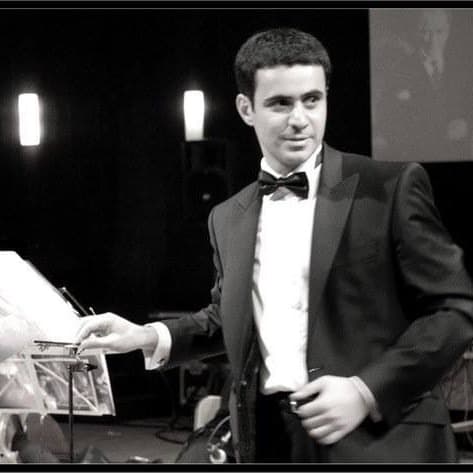Tutor in New York, New York
I'm an
Individual
The best piano teacher in New York and New Jersey accepting a few piano students for the fall school year.
- great with beginners, young students and adults
- over 16 years teaching experience
- lots of great world wide references
- Location isn't matter
- Student home can also available
- Convenient studio space off of Vanderbilt ave.
- 75 dollars per hour
WHY TO PLAY PIANO?
For many adults, learning to play the piano is a great way to help alleviate stress, stimulate the mind, improve coordination, and promote an overall sense of well-being.
After a long hard day, it's great to relax and express your emotions with the soothing sounds of a genuine acoustic piano.
Playing the piano is not only fun and entertaining, it also provides great exercise for your brain. The same way your muscles can benefit from resistance or cardiovascular exercises, practicing the piano for just 20 minutes a day can help keep you mentally fit.
The importance of learning to play the piano has been documented to promote physical rehabilitation in people of all ages, but can especially help older adults stay mentally active and protect against certain illnesses, such as Alzheimer's disease.
Learning to play the piano Studies also suggest that children as young as four years old can enjoy a lifetime of benefits from early exposure to piano, singing, guitar and other types of music lessons.
In fact, pediatric researchers have found evidence that when a child begins learning to play the piano, or takes up any type of musical instrument, this stimulates certain areas of the brain that controls their fine motor skills, memory and speech.
The self-discipline and determination needed to practice a piano regimen on a regular basis gives children a special awareness about the process of learning that carries over into their school lives.
Learning to play the piano typically requires a student to read music notation written on a staff and interpret the correct keys to play on their piano keyboard.
Learning to play the piano
Music notation also challenges a piano student to determine how long notes must be played for, how many beats there are in a measure, and which note gets one beat during that measure.
These types of mental exercises and hand-eye coordination tasks appear to help strengthen a child's academic performance particularly
in the areas of mathematics,
science and reading.
Researchers also point out that young students who are actively involved in musical studies are more likely to experience a higher sense of self-esteem, accomplishment and were more likely to participate in physical activities.
Consequently, early participation in games and sports-related activities also helps children develop their gross motor skills as well as their fine motor skills. The increased physical activity lends itself to helping children maintain an average and healthy body mass index (BMI), which can also have a dramatic influence on their early social developmental skills.
A music education clearly offers children, adults and people of all ages a variety of benefits regardless of nationality, language, religion or social class. The piano is the world's best-known, widely used, and most loved musical instrument of all.
Regardless of whether a music student is learning to play the piano, guitar, violin, bass or even vocals, a piano is usually somewhere within reach during most music curriculums.
Why is that? Because an acoustic 88-key piano contains the broadest range of musical tones out of any musical instrument in the world! This allows composers to write music compositions for any other musical instrument and also tune any instrument, regardless of its' pitch range, against the piano.
Experience
Casual
Early development
Elementary school
Graduate
Secondary school
University/College
Services
Music
Visual arts
Share This Profile
Find Tutor in New York, New York
More in New York, New York
Want to connect with Faruk?
Similar Profiles Nearby
Near New York, New York
Luis Raul A
Science and math tutor
Supin J
TUTOR for MULTIPLE SUBJECTS AND TESTS
Sheree G
Certified English Language Arts Teacher Offering Excellent Tutoring Packages
Arianna G
Chinese & Spanish tutor
Lauri R
Elementary tutor will help your child achieve their goals
Saphira E
Experienced Bronx, NY Tutor Offering Affordable $15/Hourly Rates - Book a Session Today!
Layla D
Experienced New Hyde Park Tutor Offering Affordable $30/Hour Sessions
Gabriela M
Experienced Fairfield Tutor Offering Expert Academic Support - $22/Hour
